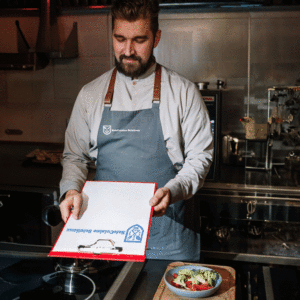
Introduction: Food safety regulations are a crucial aspect of operating a successful and compliant restaurant. Navigating through the various regulations can be overwhelming, but it is essential for maintaining the health and well-being of your customers. In this blog post, we will provide a roadmap to help restaurant owners understand and navigate food safety regulations effectively, ensuring a safe and sanitary environment for both employees and patrons.
Understanding Food Safety Regulations:
- Local Health Department Regulations: Familiarize yourself with the food safety regulations specific to your local health department. These regulations outline the requirements for food establishments regarding food handling, sanitation, storage, employee hygiene, and facility maintenance. Stay updated on any changes or updates to ensure ongoing compliance.
- FDA Food Code: The FDA Food Code provides a model set of regulations that many local health departments adopt or use as a reference. While not universally adopted, understanding the FDA Food Code can provide valuable insights into best practices for food safety. Review the code to gain a comprehensive understanding of the principles and requirements that influence local regulations.
- HACCP Principles: Hazard Analysis and Critical Control Points (HACCP) is a systematic approach to food safety management. Familiarize yourself with the HACCP principles, which involve identifying and evaluating potential hazards, establishing critical control points, implementing control measures, and maintaining records. While not always required, HACCP principles can enhance your food safety practices and demonstrate your commitment to excellence.
Implementing Food Safety Practices:
- Proper Food Handling: Ensure that your staff is trained in proper food handling techniques, including safe storage, thawing, preparation, cooking, and cooling. Emphasize the importance of hand hygiene, avoiding cross-contamination, and maintaining proper temperatures during all stages of food handling. Regularly monitor and document temperature controls to comply with regulations.
- Sanitation and Cleaning: Develop and implement a robust sanitation program that includes regular cleaning schedules, sanitizing procedures, and pest control measures. Train your staff on proper cleaning techniques, the use of approved sanitizers, and the importance of maintaining a clean and sanitary environment. Keep detailed records of cleaning activities to demonstrate compliance.
- Employee Training: Provide comprehensive and ongoing training for your employees on food safety practices. Cover topics such as personal hygiene, cross-contamination prevention, allergen management, and proper equipment use. Regularly review and reinforce training materials to ensure consistent compliance and knowledge among your staff.
- Documentation and Record-Keeping: Maintain accurate and up-to-date records of your food safety practices. This includes temperature logs, cleaning schedules, employee training records, supplier certifications, and any relevant permits or licenses. Organized and detailed documentation demonstrates your commitment to compliance and serves as evidence of your adherence to regulations.
Staying Compliant:
- Regular Self-Assessments: Conduct regular self-assessments to identify any potential gaps or areas for improvement in your food safety practices. Utilize checklists or guidelines provided by local health departments to ensure you cover all necessary aspects of compliance. Address any issues promptly to maintain ongoing compliance.
- Stay Updated: Stay informed about changes in food safety regulations through industry publications, health department communications, and industry associations. Regularly check for updates to local regulations and make necessary adjustments to your practices accordingly. Attend training sessions or workshops to stay current with best practices and emerging trends in food safety.
- Engage with Experts: Seek guidance from food safety consultants or experts who specialize in navigating food safety regulations. They can provide valuable insights, conduct audits or inspections, and offer recommendations to enhance your compliance efforts. Working with professionals ensures you have access to the latest information and expertise in the field.
Navigating food safety regulations is a crucial responsibility for restaurant owners. By understanding the local health department regulations, implementing proper food safety practices, and staying compliant through regular assessments and updates, you can create a safe and sanitary environment for your employees and customers.
At SafeCuisine Solutions, we are dedicated to helping restaurant owners navigate the complexities of food safety regulations. Our team of experts can provide comprehensive consulting services tailored to your specific needs, ensuring that you meet and exceed the necessary requirements for food safety compliance.
Stay tuned for more informative articles and resources on food safety as we continue our commitment to elevating culinary standards and guiding you on the journey to maintaining a safe and compliant restaurant environment.

